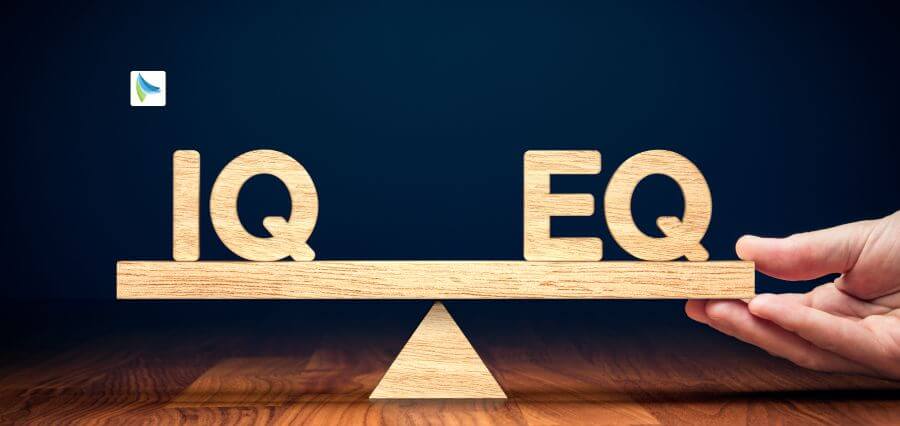During an era of rapid technological change, economic uncertainty, and shifting demographics in the workforce, the traditional definition of leadership is actually evolving. Achieving success is no longer merely a function of technical proficiency, strategic insight, or management skills. Increasingly, it is emotional intelligence (EQ) — the ability to recognize, understand, and manage one’s own and other individuals’ feelings — that distinguishes superlative leaders from merely competent ones. As businesses put more value on versatility, variability, and worker well-being, emotional intelligence has arrived not just as an extra skill but as a central leadership superpower.
Understanding Emotional Intelligence in a Leadership Environment
There are five basic competencies that make up emotional intelligence: self-awareness, self-regulation, motivation, empathy, and social skills. These are the building blocks whereupon leaders connect with their people, tackle challenges, and affect outcomes. While IQ is unchangeable, EQ can be attained by hard work and reflective practice. Emotional intelligence leadership is manifested in the ability to lead with empathy, resolve conflicts constructively, communicate effectively, and establish trust. It enables leaders to respond rather than react, creating spaces that foster innovation, resilience, and collective growth.
Building High-Performing, Human-Centric Teams
Emotionally intelligent leaders are likely to build high-performing teams. Through being attuned to the diverse emotional and motivational drivers in their team, emotionally intelligent leaders establish psychological safety — a key driver of employee engagement and team performance. When individuals feel heard, valued, and understood, they are likely to contribute willingly, experiment, and remain committed to common goals.
In addition, EQ-leadership fosters inclusiveness of decision-making. It fosters open conversation and active listening, thereby allowing leaders to access their team’s best thinking. Not only does it foster creativity, but it also produces better business decisions by eliminating blind spots and unconscious biases. Lastly, emotionally intelligent leaders create environments where people thrive and overall performance improves.
Handling Crisis and Change with Equanimity
During times of turmoil, emotional intelligence is a force for stability. Leaders often must guide their organizations through crises — economic downturn, organizational change, or global crisis. While hard skills may possibly manage the nuts-and-bolts of crisis management, it is emotional intelligence that provides clarity, empathy, and calm needed to navigate during times of uncertainty.
Emotionally intelligent leaders are not daunted by adversity, they speak the truth, and own up to their people’s emotional response. That, in return, creates confidence and dampens anxiety so there is better working in high-pressure environments. When showing emotional robustness, they enable other people to drive change through belief and purpose rather than fear and reluctance.
The Strategic Advantage in a Competitive Marketplace
Emotional intelligence is a competitive advantage in today’s business landscape. There is empirical correlation time and again found in research between high EQ leadership and enhanced employee retention, customer satisfaction, and organizational performance. Clients, stakeholders, and partners increasingly look for authenticity, emotional connection, and integrity — all characteristics of emotionally intelligent leadership.
Besides that, EQ enhances the market vision and adaptability potential of a leader. With increased sensitivity to internal organizational dynamics and external stakeholders’ feelings, emotionally intelligent leaders have more flexible, better-informed decisions. Their ability for multi-layered people skill and empathetic leadership makes them genuine brand ambassadors and visional change agents.
Developing Emotional Intelligence: A Leadership Priority
As businesses realize the bottom-line value of EQ, leadership development programs that incorporate emotional intelligence training are becoming increasingly significant. Unlike traditional models of control and dominance-based leadership, more recent models emphasize emotional agility, vulnerability, and interpersonal effectiveness. Organizations that invest in EQ development — coaching, reflective practice, and 360-degree feedback — will probably create agile, empathetic leaders to navigate the subtleties of the day.
Above all, emotional intelligence is not a so-called soft skill in the usual sense; it is a very-high-level skill with concrete outcomes. Those executives who prioritize emotional building are more apt to inspire, motivate, and innovate. They build loyalty, foster collaboration, and instill long-term success through a convergence of business objectives with human ethics.
Conclusion: The Future Belongs to Emotionally Intelligent Leaders
The leadership of the future is learning to lead from the heart, as well as the head. Emotional intelligence is no longer a “nice-to-have” skill; it is an energy that propels the way leaders engage with their people, respond to challenges, and create enduring difference. In a universe of human complexity and interconnection, emotional intelligence is the talent that makes leaders not only survive, but thrive all around them. Looking ahead to the future, the strongest leaders will be those who combine strategic wisdom with emotional sophistication — leading from below, but on purpose.













